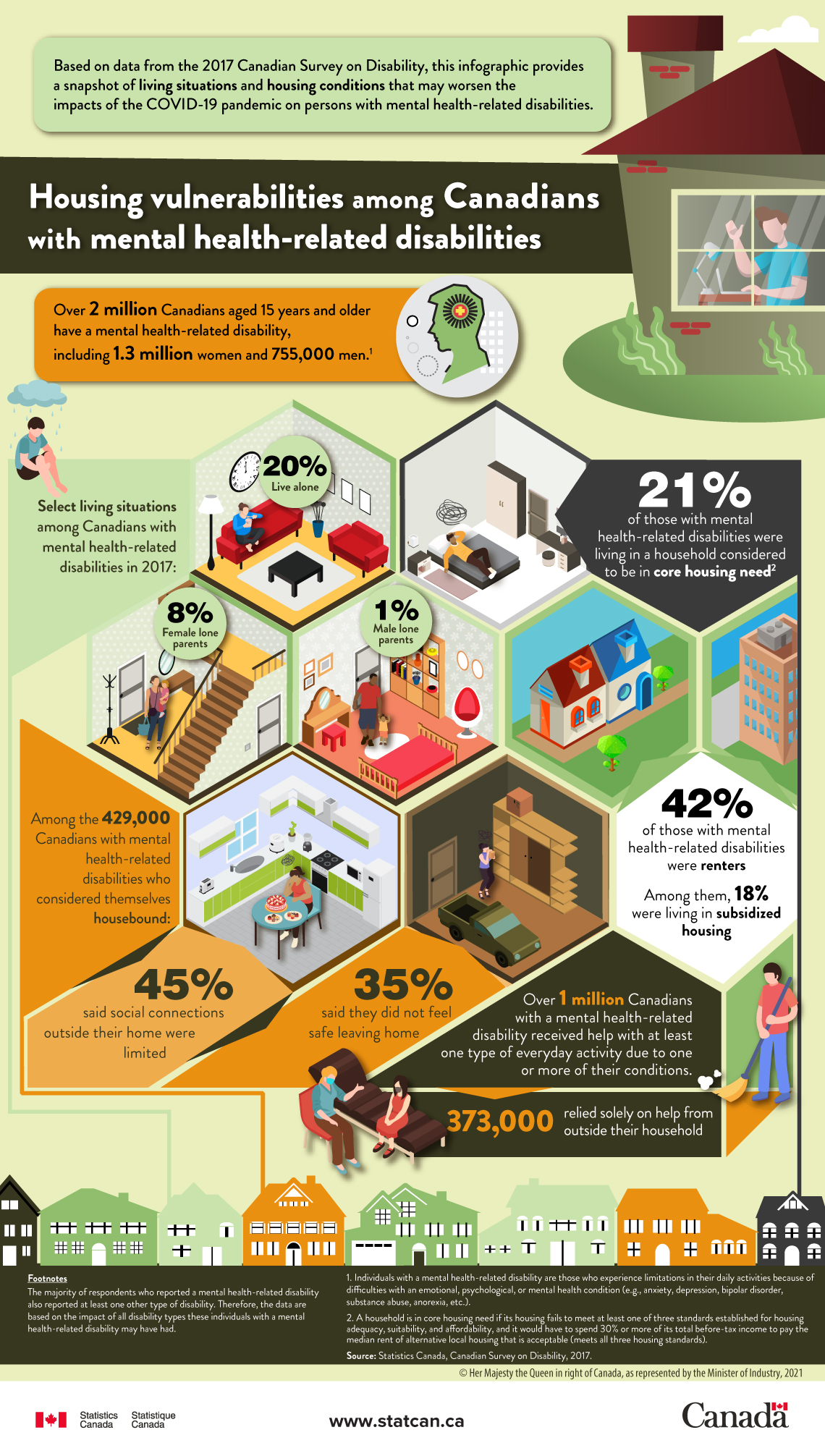Housing vulnerabilities among Canadians with mental health-related disabilities
Archived Content
Information identified as archived is provided for reference, research or recordkeeping purposes. It is not subject to the Government of Canada Web Standards and has not been altered or updated since it was archived. Please "contact us" to request a format other than those available.
Release date: January 28, 2021

Description: Housing vulnerabilities among Canadians with mental health-related disabilities
Based on data from the 2017 Canadian Survey on Disability, this infographic provides a snapshot of living situations and housing conditions that may worsen the impacts of the COVID-19 pandemic on persons with mental health-related disabilities.
- Over 2 million Canadians aged 15 years and older have a mental health-related disability, including 1.3 million women and 755,000 menNote
- Select living situations among Canadians with mental health-related disabilities in 2017:
- Live alone: 20%
- Female lone parents: 8%
- Male lone parents: 1%
- 21% of those with mental health-related disabilities were living in a household considered to be in core housing needNote
- 42% of those with mental health-related disabilities were renters
- Among them, 18% were living in subsidized housing
- Among the 429,000 Canadians with mental health-related disabilities who considered themselves housebound:
- 45% said social connections outside their home were limited
- 35% said they did not feel safe leaving home
- Over 1 million Canadians with a mental health-related disability received help with at least one type of everyday activity due to one or more of their conditions.
- 373,000 relied solely on help from outside their household
Source: Statistics Canada, Canadian Survey on Disability, 2017.
- Date modified:
